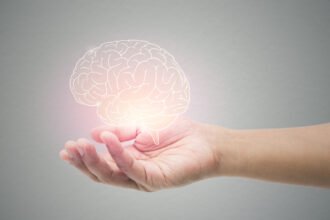In the intricate tapestry of addiction recovery, stress stands as a formidable adversary. It weaves its way through the lives of those striving for sobriety, often lurking as a silent but potent trigger for relapse. It’s necessary to delve into the mesmerizing and intricate dance between these two forces to truly grasp why stress can become the downfall of recovery.
Stress: Unveiling Emotional Vulnerability
Stress possesses a remarkable power to strip individuals in recovery of their emotional armor. In the early stages of the journey to sobriety, when someone may be in rehab for addiction in San Diego, emotions are raw and exposed.
Stress can unleash a storm of emotions. Anxiety, anger, sadness, and frustration surge to the forefront. They often leave individuals feeling emotionally vulnerable. It’s precisely in this vulnerability that stress whispers its dangerous allure – the temptation to seek solace in substances to quell the emotional turbulence.
Cravings and Temptations: The Siren Song of Stress
Stress is a cunning maestro, conducting cravings like a symphony of temptation. The human brain possesses an uncanny ability to associate stress relief with a specific substance. When stress strikes, it awakens the memory of past relief found in that substance’s embrace.
Thus, individuals in recovery find themselves battling relentless cravings and temptations when stress knocks on their door. The yearning to escape the emotional tempest provoked by stress becomes an overpowering symphony, drowning out reason and self-control. It’s as if the mind, shackled to memories of temporary respite, succumbs to the allure of relapse.
Isolation: The Lonely Abyss of Stress
Stress is a master illusionist, capable of conjuring isolation from thin air. When stress takes the stage, individuals may feel compelled to withdraw from their support systems – a step into the abyss of loneliness. Friends, family, and fellow support group members seem distant, their understanding and empathy eclipsed by the overwhelming shadow of stress.
In the midst of isolation, old habits beckon, and the memory of substance use resurfaces. The absence of a supportive network becomes a chasm, seemingly insurmountable. Here, temptation thrives in the darkness, as there are fewer guardians to protect against the siren call of relapse.
Lost in the Storm: Focus on Recovery Goals
Stress is the tempest that obscures the path to recovery. It erodes the ability to maintain a steadfast focus on the destination. When stress rages, the mind fixates on its source, a hypnotic trance that veils the progress made in recovery.
In this turbulent mental state, individuals may momentarily forget the hard-fought battles and the positive metamorphosis that has unfolded. The reasons for choosing sobriety fade into obscurity, replaced by the illusion that substance use is the sole escape from their tempestuous reality.
In the grand narrative of addiction recovery, stress takes center stage as a formidable adversary. Its ability to unravel emotional fortitude, summon cravings, impose isolation, and obscure the path to recovery makes it a worthy antagonist. Recognizing the intricacies of this dance between stress and relapse is the first step toward resilience.
To outmaneuver stress as a relapse trigger, individuals must become virtuosos of self-awareness and champions of proactive stress management. By confronting stress head-on and learning to waltz through its tempestuous tides, individuals can not only safeguard their sobriety but also discover newfound strength in the midst of life’s storms.










